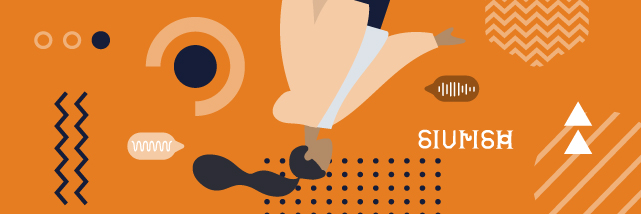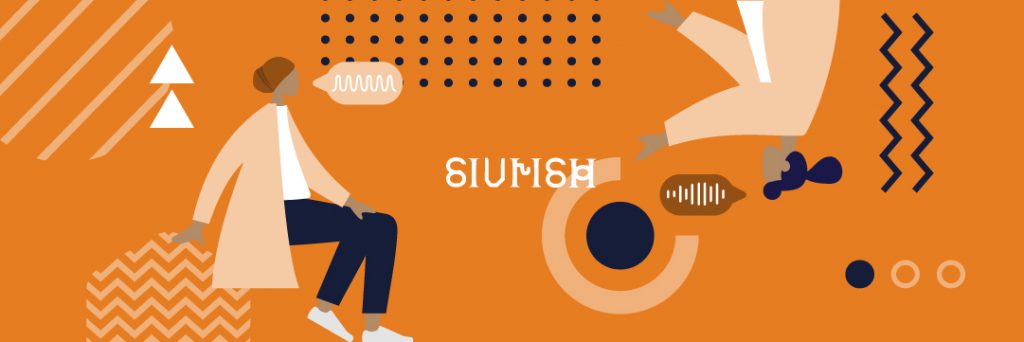It is becoming more and more obvious that video games can bring some unexpected by-products. Simlish, a fictional language featured in EA’s Sim series of games seems to have taken a life of its own.
There are a number of languages created by linguists, like Esperanto, a constructed international auxiliary language, or Dothraki, a constructed fictional language in George R. R. Martin’s fantasy novel series A Song of Ice and Fire and its television adaptation Game of Thrones. But as Alexandria Turney points out, “Simlish is mostly gibberish.” It cannot be learned in a traditional sense like other fictional languages. There is no structural grammar or syntax. Yet actual words and phrases have repeated and stuck overtime, and fan-made translations have materialized as a result, such as this unofficial Simlish Dictionary (same source).
So where do the endurance and continued development of Simlish come from? It turns out that the Sims series of games is certainly one of the most popular video games around the world. In one of its reports from 2020, EA, the developer of Sims games revealed that only its Sims 4 version “now has more than 30 million players across all platforms.”
But it seems that it is not only the popularity of the Sim games that have made Simlish gets its own life as a language. It seems that Will Wright, the game creator had the right idea when he formed the concept of Similish. “Wright ultimately decided he wanted a language that could be understood globally but also left a lot to the player’s imagination, allowing for more creative and individualistic experiences” (Screenrant, above).
The idea behind the language
Brennan Kilbane wrote a detailed analysis of the origins of Simlish and its success in The Verge. As he notes, “the world of the first Sims game, which debuted on February 4th, 2000, centered on a cul-de-sac.” So did its gameplay. Players were given a fantastical, customizable suburban world upon which they could graft their own stories of love, family, and mischief.
“Simlish was not only crafted to last but crafted to be appreciated over time. Few jokes are able to trap the delights of audiences for 20 years, and fewer still live long enough to see themselves seamlessly integrated into TikTok.
Languages take generations to develop from crude verbal associations into patterns of communication and then into Nicaraguan Sign Language. For The Sims, it took about six months.”
A game-specific language was critical to Wright’s first plans for the Sims universe. Sims had to communicate with one another, and with the player, in a way that was recognizable. But Wright was adamant about severing Simlish from the world’s existing languages. The vocabulary had to be absolutely blank so that players could distill their own imagined conversations between their characters (above).
Robi Kauker has been the Sims’ audio director since the beginning. He notes that from the start, “it was about serving gameplay.” Wright “wanted the idea of emotions to resonate with people, but he didn’t want the Sims to say anything that was meaningful so as not to mess with the characters’ storytelling.”
Sims game designer Mitu Khandaker puts it simply: “The more abstract something is, the more you can insert yourself into it. A face with two dots for eyes and a line for a mouth can be you, but the more detail you add, the more it begins to resemble somebody else” (above).
How did Simlish develop?
According to Kilbane, the team, comprised of Kauker, Wright, voice director Claire Curtin, sound designer Kent Jolly, and composer Jerry Martin, first attempted to use musical instruments. The idea didn’t work out. According to Kauker. “We wanted the players to embrace their creations, and really nothing does that better than the human voice. In real life, when a baby cries, everyone in the room reacts, because we can’t help ourselves…”
The team invited Stephen Kearin, a San Francisco voice actor. They gave him sheets in languages of which he had no knowledge of (Ukrainian and Navajo). They asked him to pronounce them as he sees them on the page. That didn’t give the team sensible results. Neither did trials with some other languages.
But then Kearin came up with the suggestion that he should try “an improv game called ‘Foreign Poet,’ where the actor retells a poem in impassioned gibberish and the listener is asked to interpret it.” It turned out that this was the direction the team wanted to go within developing Simlish. They asked Kearin to invite a female counterpart.

Kearin invited Gerri Lawlor, another improv voice actor and they became the Sims Simlish partners for the first six years of the Sims and Similish development. “The two would remain in the booth for unbroken hours in chains of unbroken days, speaking gibberish to one another, playing off what the other just said by extending a syllable to see what happened.”
From there on, “Simlish expanded to underscore new and specific emotions to mirror the complexity of the gameplay.” With it, so did expand the popularity of Sims and Simlish. It was not only attempted by gamers to develop dictionaries. Simlish entered wider pop culture, with big pop stars singing songs in the language (Katy Perry).
What are the main characteristics of Simlish?
As Simlish developed, “certain nouns in the Sims universe are now identified. Nooboo, for example, translates to the English “baby”, and can be used as a term of endearment, or to reference an infant or a crib. “Fliblia” refers to fire. “Sul-sul” is akin to “Aloha”, appropriate as a greeting or a farewell.”
At Wellesley College, Dr. Angela Carpenter teaches the foundation of language creation, which she dices into roughly six blocks: phonetics, phonology, morphology, syntax, grammatical rules of verbs, and nouns and what they indicate. Simlish’s distinctive sounds, which Kauker likens to a Midwestern-Latin hybrid, comprise its phonetics and phonology. In terms of morphology, Simlish has more in common with baby talk than English (above).
“Small children lack linguistic or cultural frames to put around their perceptions. Reality enters them torrentially, without passing through the schematizing filters of words and concepts.” At some point, children begin to grasp a language with which to express their various earthly delights and grievances and requests for food, please. Before that, they manifest as blaars and gerps.”
“Language exists in a culture, but at the same time, they’re inventing a culture,” says Dr. Carpenter. Japanese, for example, has specialized verb forms designed for politeness — there are three distinct words to indicate giving something to a superior, an inferior, or a peer — which both reinforce and informs a culture of deference.
For her part, A. Turney (Screenrant, above) notes that Similish, “although nonsensical at its core, is still able to get multiple points and emotions across to the player.”
More on characteristics
Turney adds that “the erratic composition of Simlish can present a double-edged sword as far learning it goes.” Its lack of structure prevents any concrete fluency, “yet that’s where the beauty of creativity comes in!” Arguably anyone can drive in Simlish with the right tone and passion, and memorizing commonly repeated Simlish phrases can make this made-up language feel more authentic.
As fans continue to translate and compile Simlish vocabulary, EA has subtly used and even confirmed some of its words. “Sul sul,” for example, has been established by EA to mean “hello.” It has become another recognizable Simlish phrase to many. Although Simlish is a creation of The Sims developers, the fans also have a hand in bringing it to life and giving it depth. Consequently, translated Simlish has become a by-product of an unintentional collaboration between The Sims developers and their fans. There are even unofficial Simlish translators that can be found online. Also, various amateur videos that attempt to teach the fictional language. As fans are only going off the nonsense words they are hearing, Simlish spelling often differs among users. Additionally, numerous voice actors have acted with the series throughout the years. So certain phrases don’t always carry over while new ones emerge with different generations (above).
Brennan (The Verge, above) also notes that you can now identify certain nouns in the Sims universe. Nooboo, for example, translates to the English “baby”, and you can use it as a term of endearment. Or, it can be a reference to an infant or a crib. “Fliblia” refers to fire. “Sul-sul” is akin to “Aloha”, appropriate as a greeting or a farewell.
Dictionaries and translations
The development of Simlish has reached such levels that there are not only quite a number of Simlish dictionaries around. They are also translator aggregators similar to those fans use for translating Japanese video games.
It has also become a language that you translate to, and translate from. As Brennan (above) notes, “English has also been “translated” into Simlish via the import of popular music into the Sims universe.”
Kauker (above) adds that the English-to-Simlish process is more of transcription than a translation. A song’s melody is re-crafted using the syllabary of Simlish. Currently, there is even an English to Simlish translator, as well as advice on which Similish phrases to use in everyday life. (“10 Simlish Sayings You Should Add To Your Daily Vocabulary” – The Gamer)
As it turns out, Simlish started out as a language invented for a video game. The game’s popularity was one of the reasons it started getting a life of its own. But, it was also the concept of the language itself. Now even BunnyStudio has freelancers that can help you with Simlish. If that is the case, feel free to contact us. We’ll do our best to provide you with the best possible help.











